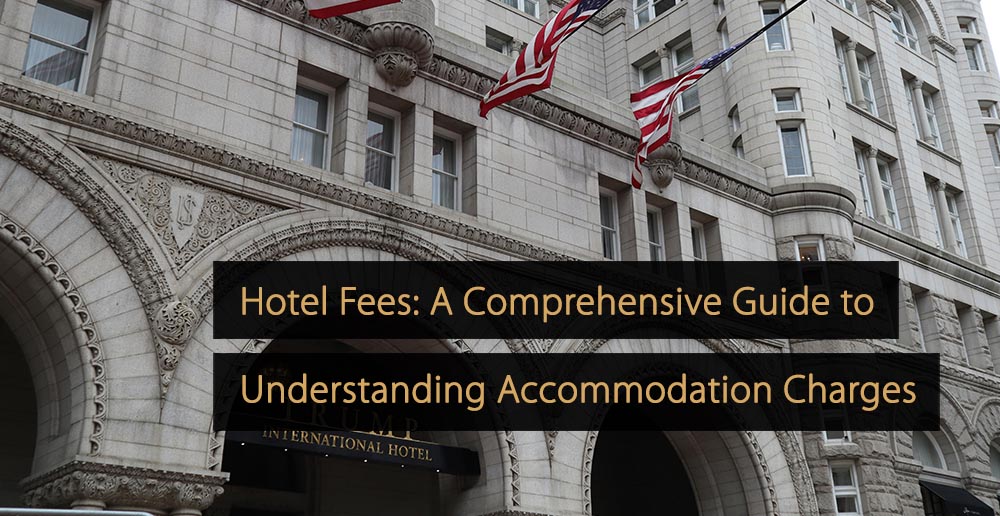To run a hotel business successfully, you need to consider various factors, conduct effective research, and make detailed plans. In this article, you’ll discover the most crucial steps, from creating a business plan to staffing and operating your hotel. You’ll find out what strategies make a hotel successful and how you can put them to work for your business.
Table of Contents:
- What Is the Hotel Industry?
- What Does It Mean to Be an Owner of a Hotel?
- 4 Key Aspects When Starting a Hotel
- 8 Strategies to Run a Hotel Successfully
- Inventory Management
- Important KPIs for Hotels
- Hotel Investments
What Is the Hotel Industry?
When discussing how to run a hotel business successfully, it’s useful to take a step back and consider the hotel industry more generally. The hotel industry forms a large part of the wider hospitality industry. This covers many different types of business, including food and beverage, leisure and entertainment, travel and tourism, and accommodation.
The hotel industry falls under the heading of accommodation, with hotel meaning any type of establishment that provides lodging for one or more nights, but usually less than a year. The hotel industry includes every type of business that offers this kind of accommodation, from conventional hotels and motels to luxury resorts and wellness spas, boutique hotels in exciting destinations, to simple seaside B&Bs.
The hotel industry serves all demographics, including families taking a summer break, business travelers, solo adventurers, and students traveling for education. To discover more about the industry, read “Hotel Industry: Everything You Need to Know About Hotels!”
What Does It Mean to Be an Owner of a Hotel?
A successful hotel business starts with a hotel owner. This entity – whether a person or an organization- runs a hotel. This means any kind of enterprise that offers accommodation.
A hotel owner can be a retiree who owns and operates a B&B, a small regional company with a few motels, or an international corporation with whole chains of hotels worldwide. A hotel owner’s responsibilities include everything related to the hotel or hotels on their portfolio.
Hotel owners are responsible for securing business licenses, maintaining the property’s infrastructure, any upgrades, expansion, or renovation, and the core operations of the hotel. It is common for hotel owners to delegate some or all of these responsibilities to their hotel managers. In the case of a smaller hotel, such as a B&B, the owner might be more directly involved in the day-to-day running of the business.
4 Key Aspects When Starting a Hotel
When considering how to run a hotel business successfully, there are four key elements to remember.
1. Location & Research
Location is perhaps the most critical factor in creating a successful hotel business. You need to consider how your hotel’s location will affect the business. It will influence your startup costs, your future clientele, and your hotel marketing. You need to research your area thoroughly. When considering a location, market research is crucial.
If you’re planning to open a hotel in an area that already has a lot of accommodation options, you’ll need to think about how you’ll stand out from your competitors. You’ll also need to consider the global hotel industry and the niche your hotel will occupy.
2. Determine UVP
If you want to run a hotel business successfully, establishing your unique value proposition (UVP) is a foundational step. Using the research you’ve already done, you will have established your business goals and a road map for achieving them. You will also understand how your hotel will be positioned relative to the local hospitality landscape.
Next, you need to understand your hotel’s UVP. What is the main characteristic that sets your hotel apart from your competitors? This needs to be something simple and essential, a key quality that prospective guests should be able to understand within 15 seconds.
3. Business Plan & Financing
A comprehensive business plan can mean the difference between success and failure for any business. A business plan is a document that maps out all the steps you will take as you set out to run a hotel business successfully. Your business plan will outline every stage you need to accomplish, starting with your initial idea and taking you up to the launch party.
Your business plan will include your business goals, your market research, your hotel budget, and a detailed breakdown of the hotel financing that you’ll need. Creating a business plan will help avoid potential hitches and make you more appealing to investors.
4. Build & Recruit
Your business plan will include costs for buying or constructing your hotel. An existing hotel offers cost savings but means you’ll be restricted in what you can create. Building a hotel from the ground up is expensive but will give you more scope. Recruiting and training the right staff is incredibly important in the hotel industry.
A common tactic is to begin your recruitment at the top levels, hiring an excellent hotel management team and allowing them to handle the recruitment and training of the rest of the staff. To learn more, read “How to Start Hotel Business: 10 Steps for Launching a Successful Hotel Business.”
Video: A Day in the Hotel Industry
8 Strategies to Run a Hotel Successfully
In this section, you’ll discover eight key strategies for successfully running your hotel.
1. Implement Revenue Management Strategies
Revenue management is a set of diverse strategies for optimizing revenue and minimizing costs. It’s often summed up as “selling the right hotel room to the right customer, at the right time, for the right price, through the right distribution channel, with the best commission cost efficiency.”
Revenue management involves using performance data and analytics to create accurate demand predictions, allowing you to maximize your revenue through dynamic pricing and other tactics, often utilizing revenue management systems (RMS). The article “9 Revenue Management Strategies to Grow Your Hotel Business“ explores revenue management in more detail.
2. Communicate
Good communication is indispensable in the hotel industry, whether between teams and hotel departments or with guests and external parties. Many problems can be ameliorated or avoided altogether through proper communication. Staff must be trained in communication and encouraged to listen to guests when they come to the staff with problems or questions.
Great communication creates a sense of being valued and understood by your guests, enhancing their stay with you and inspiring customer loyalty. Communication between teams and departments means that issues are addressed more effectively and don’t escalate in severity.
3. Attract Different Types of Guests to Diversify
Every hotel has a core demographic that it should strive to attract and satisfy. That said, hotel guests have great diversity, and you can leverage this to improve your occupancy rates and revenue.
Families and couples, business travelers, backpackers, and newer types of guests like digital nomads and eco-conscious travelers have their own needs and interests, which can benefit your hotel. To learn more about different types of guests and how to attract them, read “Different Types of Hotel Guests and Tips on How to Appeal to Them.”
4. Attention to Detail
Details matter if you want to run a successful hotel business. The way your staff greets guests, the little touches like fresh flowers on the reception desk, the delicious food in your restaurant, the items guests find in their rooms, and how well housekeeping duties are carried out add up to a great stay.
Efficient, speedy service when guests check in or out makes them feel welcomed and valued. A great team that takes care of details, streamlined processes and systems, and the right hotel technology contributes to creating an excellent guest experience. Guests notice details, so make sure their impression is positive.
5. Stay Up-to-Date with Hotel Technology
To run a successful hotel business, you must keep pace with the latest technology. This doesn’t mean adopting every digital fad that comes along. It means identifying and implementing the right hotel technology for your business. Something as simple as implementing an AI chatbot on your website to handle common inquiries and take bookings can boost room occupancy and increase customer satisfaction.
Other technologies, like check-in kiosks, smart locks, and in-room AI services, can make life easier and more pleasant for your guests. To learn more about recent advances and how they can benefit you, read “Hotel Technology Trends: Upcoming Innovations You Must Know.“
Video: Tour The High-Tech Hotel Of The Future | TODAY
6. Invest in Digital Marketing
Hotel marketing has changed dramatically in recent years. The rise of social media, online travel agencies, and new digital channels have transformed how hotels market to the public. You can make this work by implementing a detailed digital marketing strategy. Setting up a dedicated digital marketing team with its own budget is necessary in today’s marketplace.
Ensure your hotel is listed on popular platforms like Booking.com, Hotels.com, Trivago, etc. Leverage rewards to encourage guests to leave reviews, create package deals, and offer promotions to generate off-season bookings. For more ideas, read “Essential Hotel Marketing Strategies.“
7. Focus on Review Management
Checkout feedback is important, but it’s far from the whole story. Today’s savvy customers quickly take their opinions to social media and review sites. Your hotel needs to stay on top of reviews and comments. Have your digital marketing team follow up with reviews and mentions.
Positive reviews should receive a prompt response, thanking the customer. Negative reviews should receive a courteous and conciliatory response, with attempts to rectify the situation. Remember that prospective guests will read these reviews and will note your response. Showing that you care about your guests will leave a positive impression.
8. Ensure Your Hotel Has All the Necessary Hotel Software
A vast and sometimes bewildering array of hotel software is on the market today. Hotel software helps managers streamline their hotel operations while minimizing costs. There are many different types of hotel software: property management systems (PMS), revenue management systems (RMS), reputation management solutions, and more.
All of these can help your hotel run more smoothly, efficiently, and cost-effectively, as well as provide valuable data that you can use to improve your business. To learn more about hotel software, what it can do, and how to choose the right solutions, read “Hotel Software: The Most Important Software Solutions for Hotels.“
Inventory Management
To run a successful hotel business, you need to stay on top of your inventory. Food, toiletries, linen, housekeeping supplies, and other important items need to be kept in stock at the right levels. You must ensure you have everything you need for the perfect guest experience while avoiding over-ordering.
Fortunately, inventory management can now be automated. Implementing an inventory management system helps guarantee that vital supplies and materials are purchased as often as necessary without buying too much of any item and potentially wasting money. In addition, hoteliers also need to keep tabs on hotel maintenance to avoid downtime and ensure a happy stay for their guests.
Important KPIs for Hotels
Key performance indicators (KPIs) provide critical information about your business performance. KPIs are used to implement revenue management strategies and maximize financial performance. They include metrics like room occupancy, average daily rate (ADR), revenue per available room (RevPAR), revenue per occupied room (RevPOR), and gross operating profit per available room (GOPPAR).
Having access to these metrics is vital if you want to run a successful hotel business. In “The Most Used Revenue Management KPIs for Hotels“, you’ll learn everything you need to know about KPIs and why they’re important for your hotel business.
Hotel Investments
Whether you’re a first-time investor in property or an established investor looking to diversify your portfolio, hotel investments represent an exciting opportunity. There are many types of hotel investment to consider, from hotel real estate investment trusts to owning shares in a hotel operating company.
The hotel industry offers many attractive possibilities for investors. To learn more about hotel investments and why they might be a great addition to your portfolio, “Hotel Investments: How To Become a Successful Hotel Investor.“ You’ll discover the many ways to invest in hotels and how hotel investments can benefit you.
How To Run A Hotel Business Successfully FAQs
To answer how to run a hotel business successfully, firstly, you need to conduct careful planning before each step. Create a detailed business plan, choose your location wisely, recruit excellent staff, and implement systems and processes to ensure your hotel’s smooth running.
More Tips to Grow Your Business
Revfine.com is the leading knowledge platform for the hospitality and travel industry. Professionals use our insights, strategies, and actionable tips to get inspired, optimize revenue, innovate processes, and improve customer experience.Explore expert advice on management, marketing, revenue management, operations, software, and technology in our dedicated Hotel, Hospitality, and Travel & Tourism categories.
This article is written by:
Hi, I am Martijn Barten, founder of Revfine.com. With 20 years of experience in the hospitality industry, I specialize in optimizing revenue by combining revenue management with marketing strategies. I have successfully developed, implemented, and managed revenue management and marketing strategies for individual properties and multi-property portfolios.










Leave A Comment